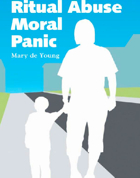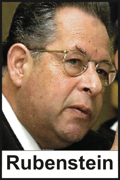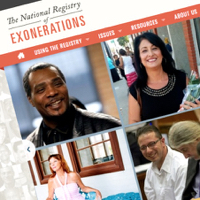Rascals case in brief
In the beginning, in 1989, more than 90 children at the Little Rascals Day Care Center in Edenton, North Carolina, accused a total of 20 adults with 429 instances of sexual abuse over a three-year period. It may have all begun with one parent’s complaint about punishment given her child.
Among the alleged perpetrators: the sheriff and mayor. But prosecutors would charge only Robin Byrum, Darlene Harris, Elizabeth “Betsy” Kelly, Robert “Bob” Kelly, Willard Scott Privott, Shelley Stone and Dawn Wilson – the Edenton 7.
Along with sodomy and beatings, allegations included a baby killed with a handgun, a child being hung upside down from a tree and being set on fire and countless other fantastic incidents involving spaceships, hot air balloons, pirate ships and trained sharks.
By the time prosecutors dropped the last charges in 1997, Little Rascals had become North Carolina’s longest and most costly criminal trial. Prosecutors kept defendants jailed in hopes at least one would turn against their supposed co-conspirators. Remarkably, none did. Another shameful record: Five defendants had to wait longer to face their accusers in court than anyone else in North Carolina history.
Between 1991 and 1997, Ofra Bikel produced three extraordinary episodes on the Little Rascals case for the PBS series “Frontline.” Although “Innocence Lost” did not deter prosecutors, it exposed their tactics and fostered nationwide skepticism and dismay.
With each passing year, the absurdity of the Little Rascals charges has become more obvious. But no admission of error has ever come from prosecutors, police, interviewers or parents. This site is devoted to the issues raised by this case.
On Facebook
Click for earlier Facebook posts archived on this site
Click to go to
Today’s random selection from the Little Rascals Day Care archives….
Click for earlier Facebook posts archived on this site
Click to go to
Today’s random selection from the Little Rascals Day Care archives….
Parents ill-prepared to practice psychology
Nov. 28, 2011
 “The Little Rascals case offers a trove of testimony illustrating how immersion into the popular psychology of sexual abuse gave parent-experts the terms and concepts to retrospectively interpret their children’s behaviors and emotions, and to do so with the ring of authority….
“The Little Rascals case offers a trove of testimony illustrating how immersion into the popular psychology of sexual abuse gave parent-experts the terms and concepts to retrospectively interpret their children’s behaviors and emotions, and to do so with the ring of authority….
“One mother testified that once she had learned the psychology of sexual abuse, she realized her child’s denial that anything untoward had happened at the day care center actually was a sign that he had been sexually abused.”
– From “The Day Care Ritual Abuse Moral Panic” by Mary De Young (2004)
‘Facts in direct conflict with charges by parents’
Dec. 16, 2011
Alan Rubenstein, who as district attorney refused to prosecute the Breezy Point case, is now a Bucks County Court judge.
Unlike H.P. Williams Jr., who was D.A. during the Little Rascals case, Rubenstein speaks freely about how he addressed claims of ritual abuse in a local day care.
 “There was no more ambitious D.A. than me,” he recalls. “I reveled in the limelight….
“There was no more ambitious D.A. than me,” he recalls. “I reveled in the limelight….
“When we first got the allegations, I said to myself, ‘Satanic ritual abuse – I’ll be on the cover of Time magazine! I’ll prosecute it personally. I’ll get these bastards and put them away for life.”
But it didn’t take long for him to reverse course.
“Breezy Point was around the corner from me. My own son had gone there. I just couldn’t see Doug Wiik in (prison) stripes… The more I thought about it, the more obvious it became that nothing had happened there…
“I put our two best county detectives on the case, and I rode them like the Pony Express.”
The resulting 60-plus-page “Investigation into Breezy Point Day School” is a model of lucid, understated logic that blows to smithereens any notion of wrongdoing:
“We have determined that the allegations are unfounded and without merit…. No credible evidence exists to support them. In stark contrast, the evidence produced during the past 11 months indicates facts in direct, clear conflict with the charges leveled by the parents on behalf of their minor children.”
Here are three excerpts that convey the reach of the investigation:
- “In the opinion of this caseworker, ‘The child clearly exhibited the inability to distinguish what was true and what was not true.’ ”
Such insights seem to have been beyond the skills or preconceptions of caseworkers in Edenton.
- “The parents, when confronted with the clear discrepancy between the child’s description of the room and its actual physical layout, have contended that the owners of Breezy Point remodeled the room, removed the fireplace, put up plasterboard and added additional windows so as to change the character of this area to avoid detection. No evidence of remodeling was uncovered during this investigation.”
Passages such as this would be hilariously deadpan, were the subject not so weighty.
- “Bucks County detectives, acting upon (claims that the children were secretly transported to the Royce Hotel), traced all records from the teacher’s family credit cards, including American Express, MasterCard and Visa, to determine if any of these individuals charged rooms or lodging at the hotel. Ledger and registration books were also examined…. A check of these records proved entirely negative.”
In Bucks County no allegation was too bizarre to investigate. In Edenton no allegation was too bizarre to presume true.
Another bumper harvest for National Registry of Exonerations
 March 20, 2017
March 20, 2017
“America saw another record year for the number of prisoners being exonerated, according to the National Registry of Exonerations, a project of University of California Irvine Newkirk Center for Science & Society, University of Michigan Law School, and Michigan State University College of Law.
“For 2016, 166 people were exonerated of crimes and released from prison, 52 of them for murder. Of all the exonerations, 70 cases involved official misconduct of some sort, and in 74 of the cases, convictions came from guilty pleas. And in 94 cases (also a record) it turned out that no actual crime occurred at all. These were mostly drug cases but also some child sex abuse cases. Most famously, the San Antonio Four, four women convicted in 1998 in a fabricated satanic child sex abuse ring scandal, were released in 2016 after it finally became clear the crimes never occurred.”
– From “Decades of exoneration stats show blacks more likely to wrongfully convicted” by Scott Shackford at reason.com (March 7)
Of the Edenton Seven, only Bob Kelly and Dawn Wilson, whose convictions were overturned, qualify for the National Registry of Exonerations. As spokesman Ted Koehler told me five years ago, “The Edenton case was a terrible witch hunt. Regretfully, though, [Betsy] Kelly’s and [Scott] Privott’s guilty pleas and the dropped charges against [Robin] Byrum, [Shelley] Stone, and [Darlene] Harris do not fit our definition of an exoneration….”
![]()
‘Is it not plain that people had frightened their children?’
Dec. 21, 2011
“Is it not plain that the people had frightened their children with so many tales that they could not sleep without dreaming of the devil, and then made the poor women of the town confess what the children said of them?”
– From Francis Hutchinson’s “Historical Essay Concerning Witchcraft” (1718) describing the 1669 “seduction” of 300 children in Mora, Sweden, which resulted in the burning of 85 “witnesses” (cited in “Victims of Memory” by Mark Pendergrast)











0 CommentsComment on Facebook